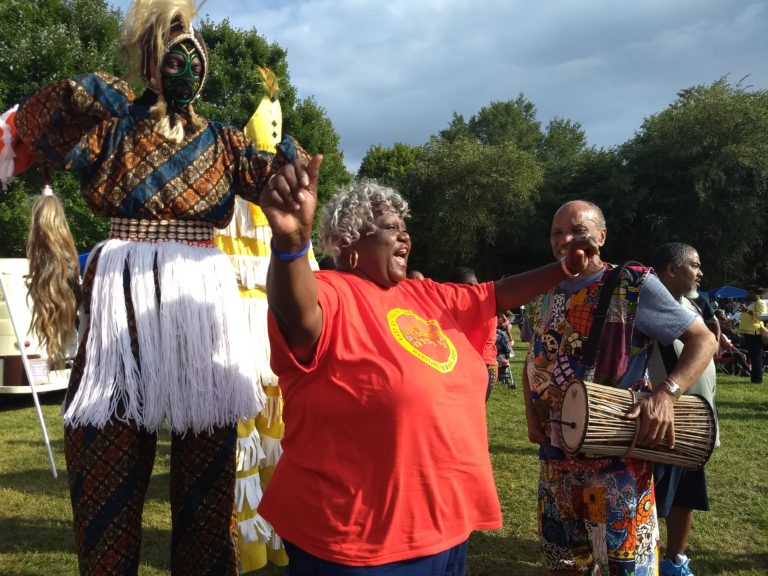Where is it? The East End/Valley Street neighborhood is located east of Biltmore Avenue and rises up Beaucatcher Mountain.
Details: East End/Valley Street is the oldest and most historically significant African-American neighborhood in Asheville. Once the center of African-American life in Asheville, the neighborhood is connected to The Block (Eagle and Market streets) and Valley Street (now South Charlotte Street), which was the heart of the neighborhood. The Block — home of the historic YMI Cultural Center, a pharmacy, law offices, other businesses and recreation — was once a draw for African-Americans from the entire region where renowned celebrities and musicians from across the country performed.
It is in East End/Valley Street that almost all of the first African-American churches of various denominations were and where two of the most significant schools for African-Americans in the city were located — Allen High School, a private (Methodist) school for girls, and Stephens-Lee High School, a public school that became something of a community center and a center for black culture and education for the whole region in the mid-20th century.
In the 1970s, Asheville’s urban renewal projects changed everything. Long ignored by the City, the neighborhood’s infrastructure and many homes were in code violation. At that time, a significant portion of the neighborhood was razed, not only changing the face of the neighborhood, but connections between families and friends were unalterably changed. Residents were dispersed all across the city — some never to return.
Today, old and new residents are now working side by side in a concerted effort to re-create that lost sense of community, preserve and protect our rich African-American heritage, re-connect the two parts of what was once a single unified neighborhood, and make sure that the neighborhood and its residents are actively involved in any decisions affecting their future.
Quote: The East End is rising!
Of note: The East End/Valley Street Community Heritage Festival has been an annual event in August; however, it will not occur this year.
Learn more by visiting eastendvalleystreet.org.
Learn more
Visit the City of Asheville Neighborhood Services webpage: www.ashevillenc.gov/neighborhoods.
Register your neighborhood! Submit your neighborhood information to the City of Asheville by working with Neighborhood and Community Engagement Manager Brenda Mills. Contact her at 828-259-5506 or BMills@ashevillenc.gov. You can access the form at www.ashevillenc.gov/neighborhoods. Already registered, please make sure to update your information.
Benefits of neighborhood registration:
- Communications with neighborhoods on City and other initiatives that are important to neighborhoods.
- Notifications on public meetings, street closures and other information affecting your area.
- Improve the City’s ability to network with you and provide opportunities for you to communicate with the City and other interested neighborhoods.
